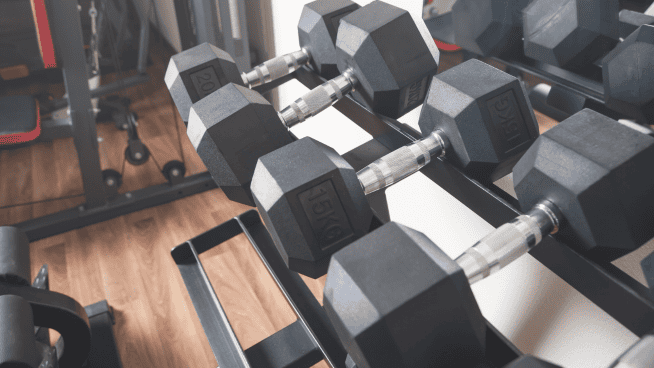Nutrition for Athletes: 3 Simple Ways You Can Improve Performance
When it comes to athletic performance and body composition goals, training often gets the limelight. But an athlete’s nutrition is just as important, since it provides the recovery that allows your body to adapt to higher levels of intensity.
Just by nailing down the basics, you can greatly improve your performance. Here are three simple nutrition strategies to get you started.
1. Pay Attention to Protein
High-quality sources of protein contain all nine essential amino acids, which help repair and rebuild your muscles. Essential amino acids don’t occur naturally within our bodies, so we must consume foods or drinks the contain them in order to build muscle and perform other key functions at an optimal level. Consuming a protein meal post-workout can promote muscle protein synthesis, which is important for building muscle.
Also, protein has a high thermic effect, meaning it is not as easily digested as other macronutrients, hence more energy is expended to digest it. Because it is not easily digested, protein keeps us full for longer periods of time. This is definitely an important factor with respect to fat loss.
Most people looking to build muscle should aim for 1 gram of protein per pound of body weight. If you’re on a caloric deficit program and trying to lose weight, bump that number up to 1.5 grams of protein per pound of body weight.
Protein is most commonly associated with animal sources—beef, chicken, eggs, etc.—but there are many other sources of high-quality protein. Beans, nuts and legumes are all packed with protein and other useful nutrients. If you want a quick dose of protein in a convenient manner, a decent protein powder can do the trick!
RELATED: 20 Delicious Ways to Add Protein to Your Diet
2. Use Carbs as Fuel
Another macronutrient that has a huge impact on performance is carbohydrates. Stored as glycogen in muscles, they are the body’s preferred fuel source.
However, this doesn’t mean you can consume all the carbs you want. Choosing the right amount of carbs for the right level of activity is important. If you are only doing a brisk treadmill run for 30 minutes, I suggest putting down that sports drink; you probably don’t need the extra carbs. However, if you are participating in a marathon or an intense game or practice spanning several hours, consuming carbs can help improve your performance.
Think of carbs as fuel. The higher the intensity of your activity and the effort you expend, the more carbs you probably need. If you plan to compete or train and want to perform at your highest level, consuming carbs prior to the activity can definitely help.
Carb consumption is also important after you work out. Aim to consume a meal or drink with at least a ratio of 2:1 carbs to protein after intense exercise.
RELATED: How Protein and Carbs Work Together to Build Muscle
3. Food First, Supplements Only If Needed
I’m not against the use of supplements. I use them regularly. But it’s important to resist buying the latest hot supplement being advertised on late-night infomercials. A simple pill or powder isn’t enough to change your life for the better; in some cases, it might actually harm you.
Relying on supplements over quality food to reach a performance or body composition goal is a big mistake. The power of supplements simply cannot compare to the power of a well-balanced diet.
Instead of thinking about nutrition in terms of what supplement you need to buy next, start thinking of the foods you can eat to help you reach your goals. Once you look at the macronutrients of the foods you’re eating, you’ll be able to make adjustments and replacements that will help you. If you make a concerted effort to do this and still come up short on certain nutrients, then and only then should you start looking to supplements to fill the gap. That’s why they’re called supplements; they’re meant to supplement a good diet, not replace it.
Of course, some supplements that can improve performance—such as creatine and beta-alanine—are hard to obtain through regular food. A good whey protein powder also makes sense for its nutrition and convenience.
[cf]skyword_tracking_tag[/cf]RECOMMENDED FOR YOU
MOST POPULAR
Nutrition for Athletes: 3 Simple Ways You Can Improve Performance
When it comes to athletic performance and body composition goals, training often gets the limelight. But an athlete’s nutrition is just as important, since it provides the recovery that allows your body to adapt to higher levels of intensity.
Just by nailing down the basics, you can greatly improve your performance. Here are three simple nutrition strategies to get you started.
1. Pay Attention to Protein
High-quality sources of protein contain all nine essential amino acids, which help repair and rebuild your muscles. Essential amino acids don’t occur naturally within our bodies, so we must consume foods or drinks the contain them in order to build muscle and perform other key functions at an optimal level. Consuming a protein meal post-workout can promote muscle protein synthesis, which is important for building muscle.
Also, protein has a high thermic effect, meaning it is not as easily digested as other macronutrients, hence more energy is expended to digest it. Because it is not easily digested, protein keeps us full for longer periods of time. This is definitely an important factor with respect to fat loss.
Most people looking to build muscle should aim for 1 gram of protein per pound of body weight. If you’re on a caloric deficit program and trying to lose weight, bump that number up to 1.5 grams of protein per pound of body weight.
Protein is most commonly associated with animal sources—beef, chicken, eggs, etc.—but there are many other sources of high-quality protein. Beans, nuts and legumes are all packed with protein and other useful nutrients. If you want a quick dose of protein in a convenient manner, a decent protein powder can do the trick!
RELATED: 20 Delicious Ways to Add Protein to Your Diet
2. Use Carbs as Fuel
Another macronutrient that has a huge impact on performance is carbohydrates. Stored as glycogen in muscles, they are the body’s preferred fuel source.
However, this doesn’t mean you can consume all the carbs you want. Choosing the right amount of carbs for the right level of activity is important. If you are only doing a brisk treadmill run for 30 minutes, I suggest putting down that sports drink; you probably don’t need the extra carbs. However, if you are participating in a marathon or an intense game or practice spanning several hours, consuming carbs can help improve your performance.
Think of carbs as fuel. The higher the intensity of your activity and the effort you expend, the more carbs you probably need. If you plan to compete or train and want to perform at your highest level, consuming carbs prior to the activity can definitely help.
Carb consumption is also important after you work out. Aim to consume a meal or drink with at least a ratio of 2:1 carbs to protein after intense exercise.
RELATED: How Protein and Carbs Work Together to Build Muscle
3. Food First, Supplements Only If Needed
I’m not against the use of supplements. I use them regularly. But it’s important to resist buying the latest hot supplement being advertised on late-night infomercials. A simple pill or powder isn’t enough to change your life for the better; in some cases, it might actually harm you.
Relying on supplements over quality food to reach a performance or body composition goal is a big mistake. The power of supplements simply cannot compare to the power of a well-balanced diet.
Instead of thinking about nutrition in terms of what supplement you need to buy next, start thinking of the foods you can eat to help you reach your goals. Once you look at the macronutrients of the foods you’re eating, you’ll be able to make adjustments and replacements that will help you. If you make a concerted effort to do this and still come up short on certain nutrients, then and only then should you start looking to supplements to fill the gap. That’s why they’re called supplements; they’re meant to supplement a good diet, not replace it.
Of course, some supplements that can improve performance—such as creatine and beta-alanine—are hard to obtain through regular food. A good whey protein powder also makes sense for its nutrition and convenience.
[cf]skyword_tracking_tag[/cf]













